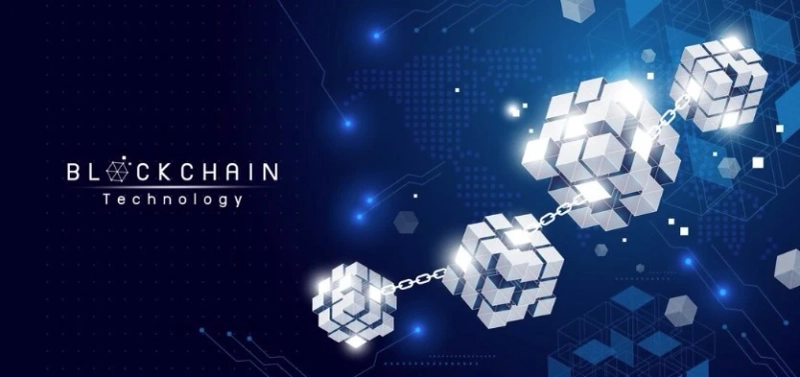Customer loyalty programs are a cornerstone of modern business strategies, aimed at retaining customers and encouraging repeat business. However, traditional loyalty programs often face issues like inefficiency, fraud, and lack of transparency. Enter blockchain technology—a revolutionary approach that promises to transform the landscape of customer loyalty programs. In this blog, we will explore how blockchain, through blockchain development services, smart contract development, and token development services, can enhance and revolutionize customer loyalty programs.
Understanding Blockchain Technology
Blockchain is a decentralized digital ledger technology that records transactions across multiple computers. Its primary features include transparency, immutability, and security. These characteristics make blockchain an ideal solution for various applications beyond cryptocurrencies, including customer loyalty programs.
Traditional Customer Loyalty Programs: Challenges and Limitations
Traditional loyalty programs often suffer from several drawbacks:
- Complexity: Managing points, rewards, and customer data can be cumbersome.
- Fraud: Vulnerability to fraud and manipulation can undermine program integrity.
- Lack of Transparency: Customers often find it difficult to track their points and rewards accurately.
- High Costs: Maintaining and operating loyalty programs can be expensive for businesses.
Benefits of Blockchain in Customer Loyalty Programs
Transparency and Trust
Blockchain’s transparent nature ensures that all transactions and point accumulations are visible to all parties involved. This transparency builds trust between businesses and customers, as customers can easily track their rewards and understand how they are earned and spent.
Security and Fraud Prevention
Blockchain’s cryptographic security measures significantly reduce the risk of fraud. Transactions recorded on the blockchain are immutable and cannot be altered or tampered with, ensuring that loyalty points are secure and genuine.
Efficiency and Cost Reduction
Blockchain automates many processes through smart contract development. Smart contracts are self-executing contracts with the terms directly written into code. They can automatically issue rewards, validate transactions, and manage customer data, reducing administrative overhead and operational costs.
Enhanced Customer Experience
By integrating blockchain technology, businesses can create a seamless and engaging customer experience. Token development services can issue unique digital tokens that represent loyalty points, making it easier for customers to earn, trade, and redeem rewards across different platforms and partners.
Key Blockchain Technologies for Loyalty Programs
Blockchain Development Service
A blockchain development service involves creating and managing blockchain networks tailored to specific business needs. For loyalty programs, this service ensures that the blockchain is optimized for handling large volumes of transactions and customer data securely and efficiently.
Smart Contract Development
Smart contract development is crucial for automating the issuance and redemption of loyalty points. Smart contracts can enforce rules and conditions automatically, ensuring that customers receive rewards promptly and accurately without manual intervention.
Token Development Service
Token development services create digital tokens that can represent loyalty points, rewards, or other assets. These tokens can be easily transferred and exchanged, providing flexibility and convenience to customers. Tokens can also be integrated into broader ecosystems, allowing for partnerships and collaborations between different businesses.
Real-World Examples of Blockchain in Loyalty Programs
Several companies have already begun to harness the power of blockchain to enhance their loyalty programs:
- LoyaltyCoin: A blockchain-based loyalty program that allows customers to earn and redeem points across multiple merchants.
- Singapore Airlines KrisFlyer: Singapore Airlines uses blockchain technology to enable customers to convert their miles into digital tokens that can be used with partner merchants.
- American Express: Amex has implemented a blockchain solution to allow merchants to create customized offers and rewards for cardholders.
How to Implement Blockchain in Your Loyalty Program
Assess Your Needs
Evaluate your current loyalty program to identify pain points and areas that can benefit from blockchain technology. Consider the scalability, security, and user experience of your existing system.
Choose the Right Blockchain Development Service
Select a blockchain development service that understands your business requirements and has experience in developing loyalty programs. Ensure they offer comprehensive solutions, including smart contract development and token development services.
Develop Smart Contracts
Work with your chosen service provider to develop smart contracts that automate loyalty transactions. Define clear rules and conditions for earning and redeeming rewards to ensure a smooth and transparent process.
Create and Issue Tokens
Develop digital tokens that represent loyalty points. These tokens should be secure, transferable, and easily redeemable. Integrate the tokens into your existing systems and ensure they are compatible with other platforms if you plan to collaborate with partners.
Educate Your Customers
Communicate the benefits of the new blockchain-based loyalty program to your customers. Provide clear instructions on how to earn, track, and redeem their rewards using the new system.
Monitor and Optimize
Continuously monitor the performance of your blockchain-based loyalty program. Gather feedback from customers and make necessary adjustments to improve the user experience and program efficiency.
Future Trends and Predictions
The integration of blockchain technology into customer loyalty programs is still in its early stages, but it shows great promise. Future trends may include:
- Interoperable Loyalty Programs: Blockchain could enable different loyalty programs to interoperate, allowing customers to transfer points between different brands and platforms seamlessly.
- Increased Adoption of Tokenization: More businesses will adopt token development services to create versatile and tradeable loyalty points.
- Enhanced Customer Personalization: Blockchain data can be used to create highly personalized rewards and offers, improving customer satisfaction and loyalty.
- Blockchain-Enabled Loyalty Marketplaces: Decentralized marketplaces where customers can buy, sell, or trade their loyalty points and rewards may emerge, providing even more value to loyalty program participants.
Conclusion
Blockchain technology holds the potential to revolutionize customer loyalty programs by enhancing transparency, security, efficiency, and customer experience. By leveraging blockchain development services, smart contract development, and token development services, businesses can create more robust and attractive loyalty programs. As the technology continues to evolve, we can expect even more innovative applications that will further transform how businesses engage and reward their customers. Embracing blockchain in your loyalty program not only future-proofs your strategy but also provides a competitive edge in an increasingly digital marketplace.


